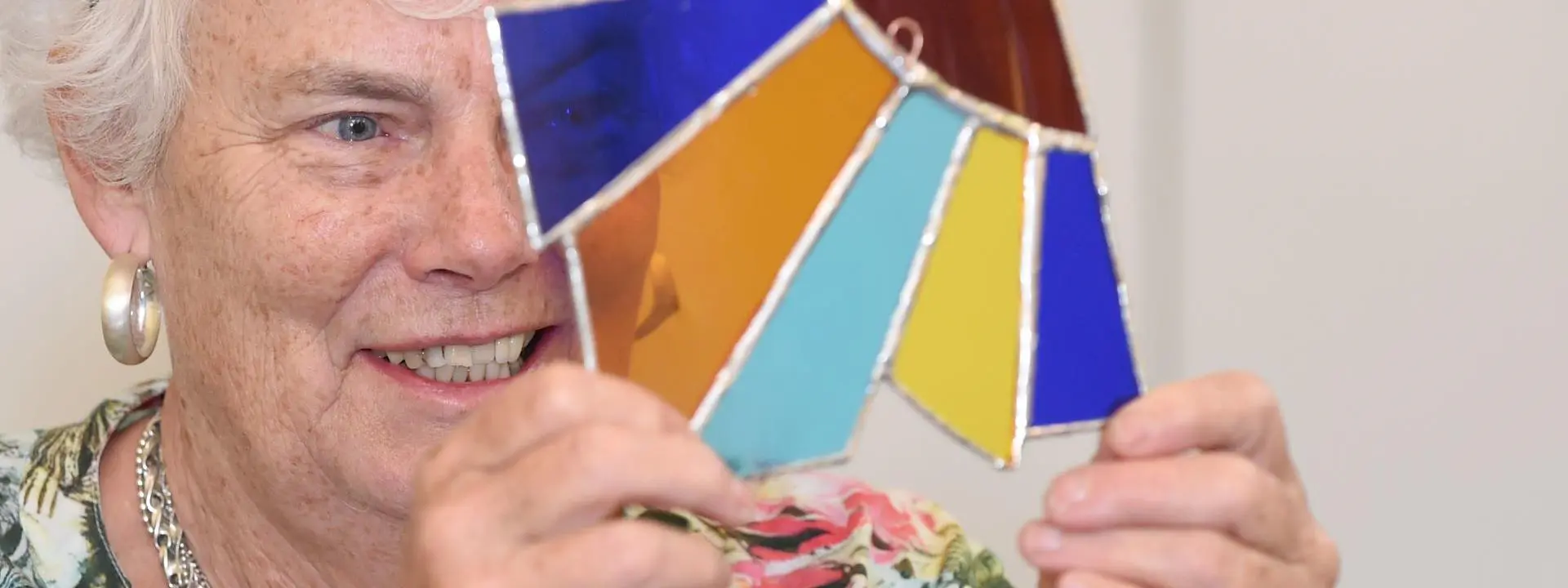Improving cognitive health: what keeps us sharp?

What keeps us sharp? Increasing public awareness of the lifestyle factors promoting brain health.
We are living longer and, for many of us, changes in the way we think, process information and remember things, are becoming a major concern as we get older. People who retain their thinking skills are likely to stay healthier for longer, so identifying the lifestyle choices that benefit brain health has never been more important.
As we get older, several factors affect how our thinking skills change, but keeping engaged in social, mental or physical activities are all potentially beneficial. Although these factors have been considered in previous intervention studies, they are often tested in lab conditions, which don't necessarily translate to realistic environments. In contrast, Heriot-Watt University's Ageing Lab research, led by Professor Alan Gow, explores how taking up new activities in a community-based setting could benefit thinking skills.
Thought for today
The Ageing Lab conducted a public attitudes survey exploring people's understanding of, and beliefs about, cognitive ageing. Supported by Age Scotland and Age UK, the “What Keeps You Sharp?” survey was completed by over 3,300 people aged 40-98. It represented the first, and remains the largest, UK-wide survey on beliefs about brain health.
The project team used the findings to prompt further conversations among several different groups, as they discussed changes to their thinking skills and the aspects that might protect or harm them. Events have varied, from small sessions in community centres across Scotland, to national meetings and an appearance at the British Science Festival.
Meanwhile, the next phase of the study focused on collecting information from people who had been asked to take up unfamiliar activities. Some started learning a language or joined social groups, while others became more physically active or began a hobby. Perhaps the most important aspect of the study has been selecting activities that people had no previous experience of and were, therefore, likely to introduce behavioural change or new skills.
Ageing Lab research has also contributed to the Global Council on Brain Health, an independent organisation from the American Association of Retired Persons (AARP; a US-based non-profit with around 40,000,000 members) and in collaboration with Age UK, to provide trusted information on how all of us can maintain and improve brain health. The 2017 report, available in English, Spanish, French, Chinese and Arabic, was disseminated internationally. The report was showcased in AARP member publications, the two largest-circulation publications in the US, reached over 1,600,000 via media coverage, and underpins ongoing AARP work as social connection is one of their “six pillars of brain health”.
Brainwaves and airwaves
To continue sharing the results of the UK-wide survey, an accessible report of our UK-wide survey was distributed to more than 3,500 individuals in hard copy, mainly via our Age Scotland and Age UK partnerships at their local and national conferences and training. Age Scotland include the lay summary in their Planning for Your Future, Preparation for Retirement, and Early-Stage Dementia training programmes.
“What Keeps You Sharp?” presentations and workshops were hosted at Age UK and Age Scotland national conferences (Perth and London respectively), with attendees representing the public, health and social care professionals, third sector and policymakers. These partnerships extend the reach of the research; and the “What Keeps You Sharp?” summary is also included on Age UK's Staying Sharp webpages, a key brain health resource.
The team's research was also the foundation for “How to Stay Sharp”, an episode of BBC Radio Scotland's Brainwaves series, with a follow-up interview on BBC Radio Scotland's Personal Best, reaching 910,000 during broadcasts. Research outcomes were also discussed as part of a BBC Radio 4 series ‘Radio Scotland Personal Best' and most recently, the team contributed to a BBC Horizon programme on intelligence contributing independent input on lifestyle and the ageing brain. The broadcast was viewed by 1,700,000 people when first broadcast.
Contact
Policy, Strategy and Impact (PSI)
- PSI@hw.ac.uk